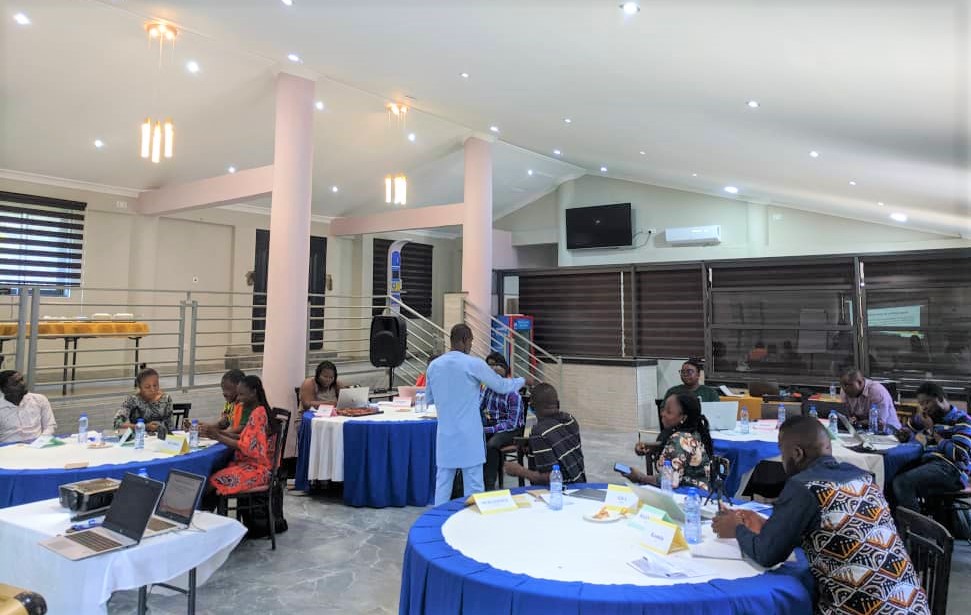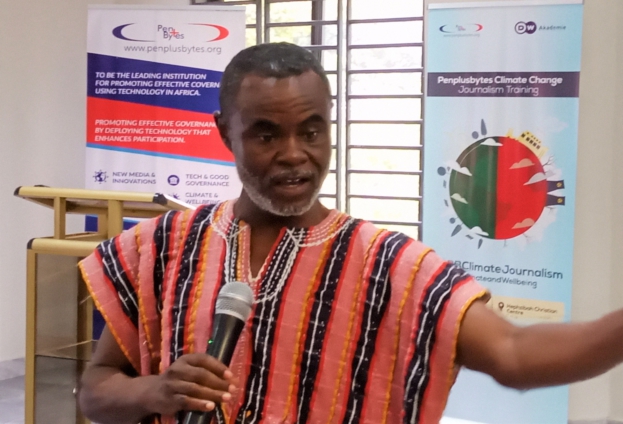The call has gone to policymakers, advocacy groups, and the media to take deliberate steps to ensure that the concerns of the people impacted by climate change reflect in their policies and reportages.
According to Dr. Martin Segtub, a climate change communication specialist, people are impacted differently, either geographically or socially, with different concerns that require different ways of highlighting their issues and dealing with them.
"Geographically because some places are more prone to climate change perturbations than other places. The coastal areas will have their challenges, and so will those in the Savannah", he explained.
He said whatever is done by the stakeholders must have policies and actions that settle the cases and concerns of the people in these different areas.
The dimensions of the different social groups, he said, also require specific attention to deal with the inequalities that arise.
"There are some people who are poor already, whose state could be made worse as a result of climate change issues”.

“And there may be some individuals who may be vulnerable. They may be blind, lame, sick, or women who are seen with some lifestyles, especially in some parts of the country where they are consigned to the house for activities such as cooking and farming, and all these things generate inequality," he averred.
He stressed the need to pay more attention to vulnerable groups, describing it as the only means of bridging the gap of inequalities triggered by climate change.
Dr. Segtub, also a lecturer at the University of Professional Studies, Accra (UPSA) made the call during a recent interview on the sidelines of a Climate Change journalism training at Aburi in the Akwapim South Municipality of the Eastern Region of Ghana.
The training, aimed at building the capacity of the selected journalists in climate change-related issues, was organized by Penplusbytes, a not-for-profit organization, and funded by DW Akademie.
Dr. Segtub, however, said it should also not be said that the people impacted by climate change are always victims every time.
"But in their state of being victims, is also the capacity they developed that can be considered anytime we need to do a national arrangement on how to fight climate change", he said, adding that a lot can be learned from the perspectives of many people, including children, for the climate change decision-making process.
On climate change reportage, Dr. Segtub advised journalists to respect the rights of the vulnerable impacted and not to worsen their plights with reports for some parochial interests.
He said, "even though they are vulnerable and have some challenges, we (journalists) must also be looking for the hope that we can get for them by giving them some respectable reportage so that it will not just be about how they are suffering. It must also be about how they can contribute to addressing this global phenomenon".
Latest Stories
-
Herman Suede set to release ‘How Dare You’ on April 22
34 mins -
Heal KATH: Kuapa Kokoo, Association of Garages donate 120k to support project
46 mins -
KNUST signs MOU with Valco Trust Fund, Bekwai Municipal Hospital to build student hostel
53 mins -
The influence Ronaldo has on people, Cadman Yamoah will have same on the next generation – Coach Goodwin
2 hours -
Gender Advocate Emelia Naa Ayeley Aryee Wins prestigious Merck Foundation Awards
3 hours -
South Africa bursary scandal suspects granted bail
3 hours -
Ecobank successfully repays $500m Eurobond due April 18
3 hours -
Re: Doe Adjaho, Torgbui Samlafo IV, call for Unity among Paramountcies in Anlo
3 hours -
Extortion and kidnap – a deadly journey across Mexico into the US
3 hours -
Rihanna says fashion has helped her personal ‘rediscovery’ after having children
3 hours -
Development Bank Ghana targets GH¢1bn funding for commercial banks in 2024
4 hours -
Shatta Movement apologises to Ghana Society of the Physically Disabled after backlash
4 hours -
Sammy Gyamfi writes: Tema-Mpakadan Railway Project; A railway line to nowhere
5 hours -
Bright Simons: Is the World Bank saving or harming Ghana?
5 hours -
CAF Cup: RS Berkane banned from entering Algeria because of a map of Morocco with its Sahara
5 hours

